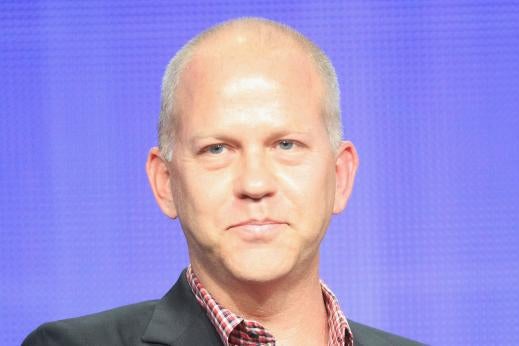I violently swore off Glee last season after three years of letting show creator Ryan Murphy manipulate my emotions. But even though Murphy’s shows tend to abandon continuity and logic to manufacture highs and lows, I couldn’t resist checking out The New Normal, his new NBC sitcom about a young gay couple seeking to have a child through a surrogate.
All the Murphy quirks are there: an older woman who says outrageously nasty things; a super-stylish gay man with a more grounded partner; and now, Real Housewife Nene Leakes. Murphy also appears to be doubling-down on a tendency that showed up occasionally in Glee: treating lesbians as the butt of jokes, rather than an actual part of the gay community.
Lesbians are already comparatively underrepresented on television. According to the Gay and Lesbian Alliance Against Defamation’s Network Responsibility Index—a study of how often gay, lesbian, bisexual and transgender people are represented on television—just 25 percent of the hours of network television that include gay characters portrayed lesbians or bisexual women. Given that imbalance, and given that Murphy co-created The New Normal with Ali Adler, herself a lesbian, it’s too bad that one of the most prominent and powerful creators of stories about gay men in pop culture has decided to portray lesbians as uglier, less cool, and more boring than gay men.
Some examples: In the pilot of The New Normal, Nana (Ellen Barkin), whose granddaughter Goldie (Georgia King) will go on to serve as a surrogate for David (Justin Bartha) and Bryan (Andrew Rannells), insists of a lesbian couple with a baby that, “those are ugly men.” True, Nana is not very p.c., but while The New Normal pushes back against many of her racist and homophobic ideas, lesbian-bashing sticks around into the next episode. In that half-hour Bryan, who in the pilot explained, “I faint at the sight of vagina. They’re like tarantula faces,” says that he and David have to have one last wild night on the town “before we fully morph into an old lesbian couple, minus the frowns and the gingerbread man bodies.” I agree, I suppose, with my colleague June Thomas, that these might be the kinds of comments that gay men make when lesbians aren’t around. But I don’t actually think they’re funny or insightful, and the stereotypes here were ancient when Alison Bechdel broke them down in her decades-old Dykes to Watch Out For comic strips.
We’re at an interesting point in the portrayal of gay people in pop culture. We’re not close to a point where the full spectrum of LGBT life is represented on television, but white gay men are closer than anyone else in the bunch. From gay teen couple Kurt and Blaine on Glee, to Revenge’s soulful tech genius Nolan, to parents Mitch and Cam on Modern Family, to Ian Gallagher on Shameless, white gay men have their stories told across the class spectrum, across career ambitions, and across life stages. It would be awfully nice if truly powerful creators like Murphy, with a level of clout that would have been unimaginable a generation ago, could remember what it felt like when there were fewer gay men on television, and fewer kinds of stories about gay men available. If Murphy wants to be considered a real hero for gay representation in media, he might consider using his success to open more doors, particularly in a show that’s supposed to be about presenting a new and more tolerant vision of the family to America.
